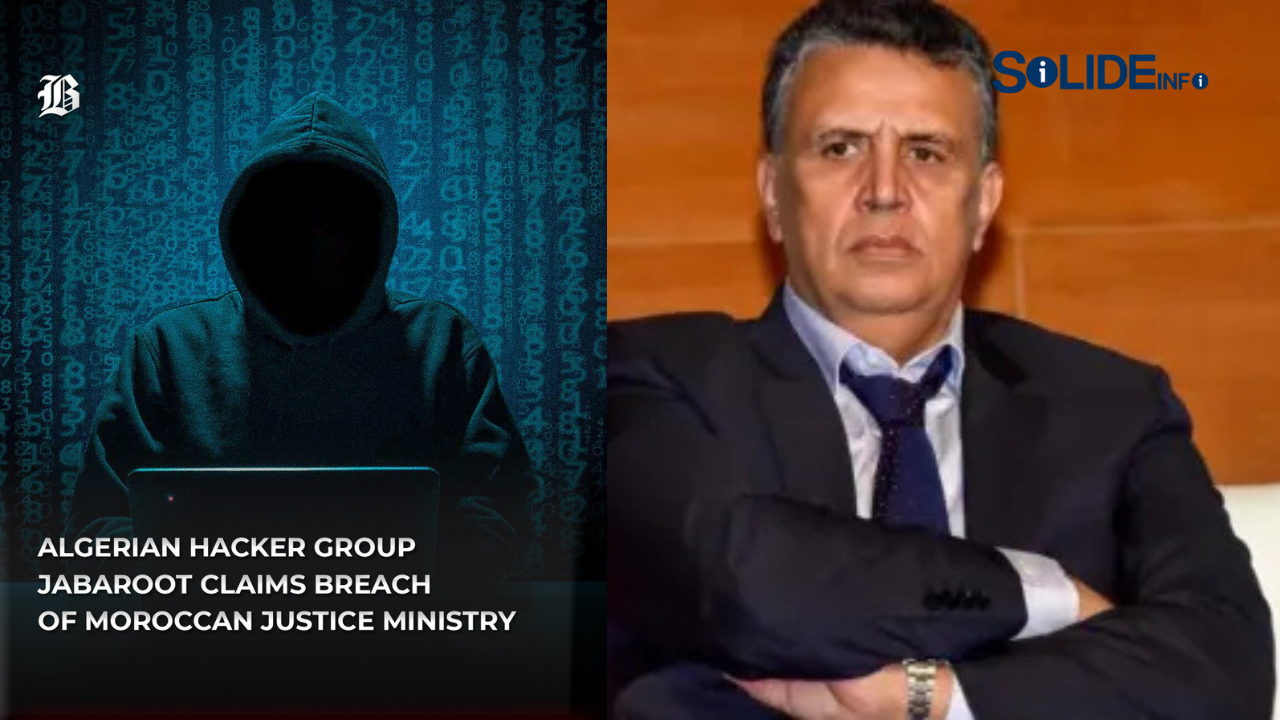News out of North Africa points to escalating tensions in the digital realm. A recent cyberattack, allegedly orchestrated by the Algerian hacking group Jabaroot, has targeted Morocco’s Justice Ministry. This incident highlights the growing threat of state-sponsored cyberattacks and underscores the urgent need for robust cybersecurity measures within governmental institutions. The attack raises questions about the potential for further escalation and the effectiveness of existing defenses against sophisticated digital threats. Understanding the motivations behind such attacks and the technological means employed is crucial for bolstering national cybersecurity strategies across the region and globally. This is a significant development demanding further investigation and highlighting the increasingly blurred lines between geopolitical conflict and the cyber landscape.
Understanding the Jabaroot Cyberattack
The specifics surrounding the Jabaroot cyberattack on Morocco’s Justice Ministry remain somewhat shrouded in mystery, with information trickling out through various news outlets and cybersecurity researchers. Initial reports suggest a sophisticated attack, potentially involving data breaches and disruption of services. While the full extent of the damage is yet to be determined, the targeting of a key governmental institution like the Justice Ministry is undeniably significant. It speaks to the potential for cyberattacks to disrupt critical government functions and undermine national security. The incident exemplifies the increasing sophistication of these attacks, relying often on techniques that exploit vulnerabilities in software and systems unseen to the average user. Experts are likely already poring over the details attempting to identify the specific vulnerabilities exploited and assess the full scope of the damage. This attack serves as a stark reminder of the ever-present threat of state-sponsored cyber warfare and the need for constant vigilance in the face of these evolving digital threats. The implications of this incident extend beyond a simple data breach; it speaks to the power of digital weaponry in modern geopolitical conflict and its potential to destabilize nations. Learning from attacks such as this is vital for improving our global Cybersecurity infrastructure. The attackers’ motivations are also an important, if still unanswered, question. Was this a simple act of digital vandalism, or was there a more strategic geopolitical goal behind the attack? Understanding the “why” behind the hack is just as crucial as understanding the “how.” For more in-depth analysis of cybersecurity threats, you might find our category on cybersecurity helpful.
Morocco’s Cybersecurity Response and Preparedness
The Moroccan government’s response to this cyberattack will be closely scrutinized by cybersecurity experts and international observers. How swiftly and effectively they contain the damage, investigate the source, and implement protective measures will not only dictate the immediate consequences but also shape Morocco’s future cybersecurity strategy. The incident undoubtedly puts a spotlight on the country’s existing cybersecurity infrastructure and its ability to withstand sophisticated attacks. The response is likely to involve a multifaceted approach, encompassing immediate damage control, a thorough forensic investigation to ascertain the methods used by the attackers, and a comprehensive review of security protocols across government networks. This event could also potentially lead to increased investment in cybersecurity technologies and training for government employees. External assistance from international cybersecurity firms and agencies specializing in incident response might also play a significant role in the recovery and preventative measures. The success of Morocco’s response will serve as a benchmark for other nations facing similar threats, highlighting the importance of proactive cybersecurity measures and international cooperation in mitigating these kinds of risks. To further understand the complexities and solutions in mitigating Cyberattacks, explore resources from trusted organizations like IBM Watson, which offers advanced cybersecurity solutions.
Geopolitical Implications and the Future of Cyber Warfare
The Jabaroot cyberattack underscores the increasingly blurred lines between traditional warfare and cyber warfare, highlighting the growing role of digital attacks in international relations. The incident contributes to a rising trend of state-sponsored cyberactivity and raises concerns about the potential for escalation among nations. This incident serves as a reminder that the digital landscape is becoming a battleground, creating significant risks and ramifications for national security and international stability. The attack against Morocco’s Justice Ministry is just one example of a broader trend of increasing sophistication and frequency in these acts. The use of sophisticated cyberattacks as a tool of geopolitical influence is a daunting prospect, requiring careful consideration and proactive measures by governments worldwide to mitigate risk. The development and deployment of AI-driven cybersecurity solutions is likely to become even more critical in the future. For further insights into the influence of AI, consider looking at our resources related to AI. This cyberattack demonstrates the need for continued international cooperation to establish norms and frameworks governing behavior in cyberspace, striving towards a more secure and stable digital environment. The challenges are immense, but the need for concerted action is undeniable. The international community must collectively work to establish a system of accountability for state-sponsored cyberattacks, ensuring that such actions have consequences and deter further attempts. Understanding the technical and strategic aspects of this evolving conflict is crucial for every country in the digital age, a fact underlined by this latest incident in North Africa.



